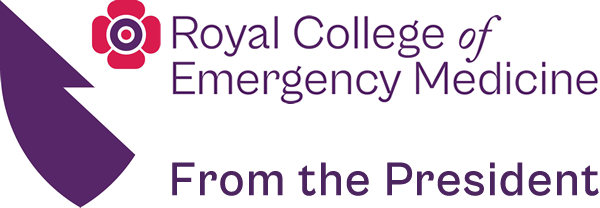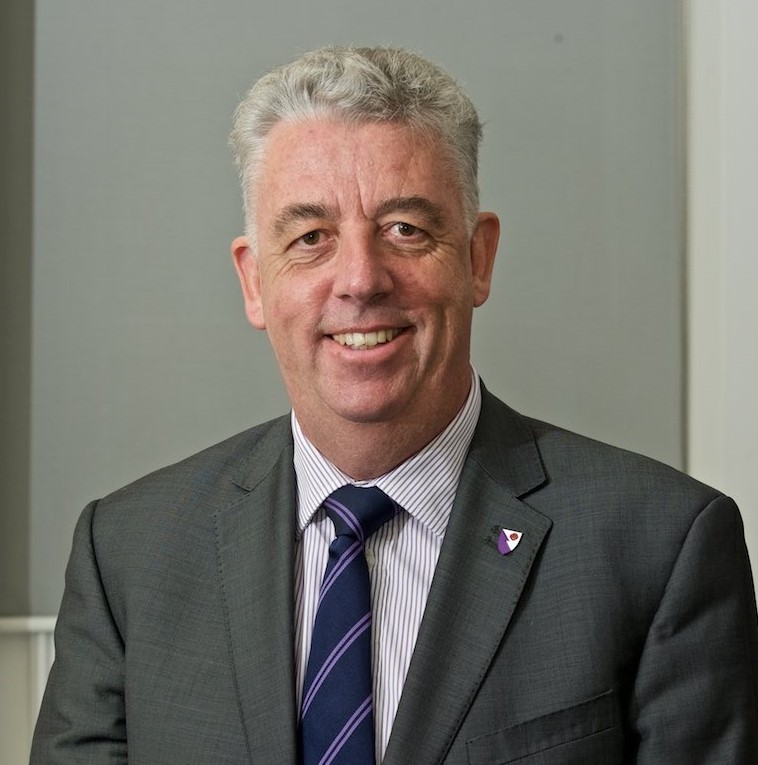With Summer in full swing (hopefully) I trust most of you will be looking forward to some well earnt holidays with family or friends.
The College is gearing up for a number of key events this Autumn, of which the most exciting will be the Exeter conference. This will be a great opportunity to update ourselves on current research in EM as well as reflecting on best practice and gaining useful CPD. The location, in a purpose built conference centre opened late last year, ensures that we will have the best of facilities and the conference organisers have worked hard to ensure a great programme with a number of simultaneous tracks to allow the widest possible coverage of current interests. The College AGM will be hosted at this event and this is an opportunity for each and all to hold the College to account. We hope to update the format this year as the traditional presentation has become less than the some of its parts. The issues are important and this should be reflected in both the substance and style of their presentation.
The College has been heavily focussed on policy issues this year and recent meetings with College National Board Chairs and myself with government ministers in Edinburgh, London, Belfast and Cardiff have reinforced that the views of the College are accorded high regard. Nevertheless the challenge of converting agreement into action is a perennial issue when dealing with statutory bodies and the Establishment – this can only be achieved by relentless, coordinated but constructive pressure at every level of representation.
Returning to the Autumn agenda, and those of you who are clinical service leads or equivalent will have been invited to our National Clinical Leaders day on November 26th. This will bring together all the EM leaders from every acute hospital in the UK and Ireland and in effect be a meeting of the people who carry the greatest burden of running an EM department. The day will celebrate your contributions, inform you of the key messages the College will be pursuing with political parties and present the tools with which we will gather the data to underpin our arguments. For those already weary the promise of a drinks reception at the end of the afternoon will I hope be sufficient incentive!
Data – as I replied in a recent ‘tweet’ is the bane of my life. Principally because so much is of such poor quality. Various government departments, agencies and other national bodies abuse this poor data to make the most absurd determinations. Not only is the data poor but the interpretation is equally woeful. Apparently excluding AAA, in a syncopal middle aged man, SAH in a young woman and ACS in an elderly man are dismissed as ‘left without treatment’ and therefore by implication both inappropriate attenders and the cause of wasteful resource expenditure. Perhaps I should not be so surprised as almost all the people who make these statements do not even know what the abbreviations refer to. I do not criticise them for the latter but it ill behoves people to claim to understand the data when they don’t know the facts. I could go on…! Set against this the College has chosen to respond constructively and has launched its Sentinel Sites Project. In its first iteration it studied over 3000 attendances to 12 EDs over 24 hrs in March. The results were recently published in the HSJ and the full data set will hopefully be published by the EMJ. Most importantly the data show that the number who could be safely redirected from triage, in the opinion of ED consultants working in those departments) was 15%. This highlights two issues. First the 40% figure quoted by some is bogus (which we knew), secondly, 15% equals 2.1 million attendances per year that could be safely referred to a co-located urgent care centre. This is not an insubstantial figure, reinforces the College position of ensuring all EDs have a co-located UCC, and if managed out-with the ED would significantly decongest our departments. I know this would have tariff implications – that’s one of the reasons why tariff reform is a key CEM 10 priority!
Another mention for the CEM10 for which I make no apologies. The value of this concise priority list has transformed our ability to broadcast our message and ensured we remain constructive and consistent. The Autumn will mark the anniversary of the CEM10 launch and the National Clinical Leaders day will allow us to measure success or failure and re-focus our priorities for the next 12 months.
I will shortly be departing to join the Presidential launch on the Riviera (Dinghy in Devon), I hope you have as much fun this summer as those who will watch me trying to sail!
Dr Cliff Mann FCEM FRCP
President
The College of Emergency Medicine
@CEMPresident


